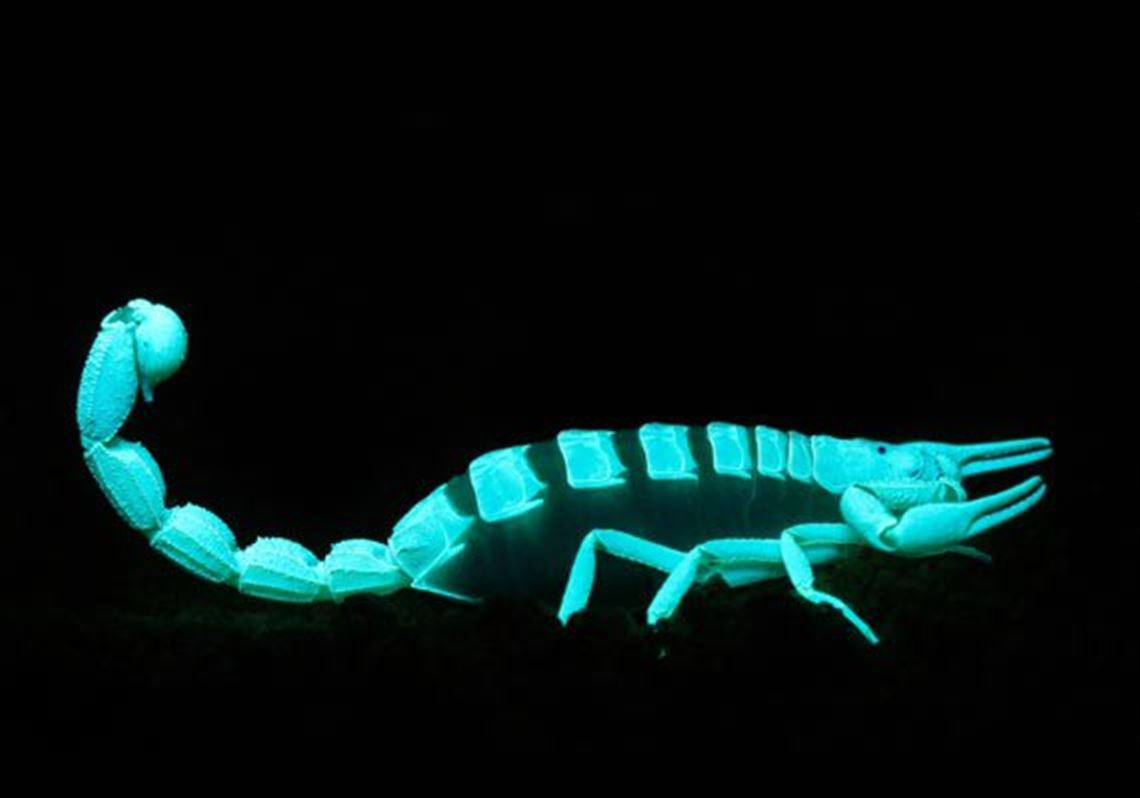The sting of a scorpion can be very painful to a dog or cat. It can make them quite ill, sometimes resulting in death.
I remember a cat that took two weeks to fully recover after I treated it for a scorpion sting. So needless to say, your pet would probably not consider scorpions a friend. But in fact, the most venomous scorpion known to man may be the best friend to pets with certain types of cancer.
The venom of the “deathstalker” scorpion of North Africa and the Middle East contains a molecule that has helped prolong the life of dogs with cancer.
Three dogs, named Whiskey, Hot Rod, and Browning, developed malignant tumors and their owners elected to enroll them in a clinical treatment trial at Washington State University Veterinary School.
Along with 25 other patients, Whiskey, Hot Rod, and Browning were given intravenous injections of a chemical from the deathstalker’s venom prior to surgery. The venomous chemical “paints” cancer cells so the cells will fluoresce, making them easier to distinguish from normal cells. This gives veterinary surgeons the advantage of knowing the exact limits of the cancer and ensures removal of all cancer cells during surgery.
This is far superior to the present method of “taking wide margins” and hoping cancer cells did not get left behind to seed a new tumor or metastasize to other parts of the body.
Says the developer of “tumor paint”:
“I predict that in a decade or so, surgeons will look back and say ‘I can’t believe we used to remove tumors by only using our eyes, fingers, and experience’ … those hidden deposits of 200 or so cancer cells? They won’t go undetected.”
Pediatric oncologist Dr. Jim Olson actually developed and patented “tumor paint” for use in humans. He reengineered the molecule in the venom so it would only latch on and identify cancer cells without causing the clinical symptoms associated with a scorpion sting. He uses the technique at Seattle’s Fred Hutchinson Cancer Research Center to help people, but he says it is also a way to help the pets they love.
“Many animal tumors resemble those that arise in humans, so it only makes sense for the two groups to reap the benefits that tumor paint can provide during cancer surgery. As WSU uses the technology to help dogs, the dogs provide information that’s applicable to human cancer.”
Dr. Olson contacted Dr. William Darnell, professor and chairman of the veterinary clinical sciences program at WSU, to encourage the trials that helped Whiskey, Hot Rod, and Browning. Dr. Darnell was so pleased with the results of the first clinical trial in dogs that they are introducing a second phase that will include feline patients as well.
As I posted in December in Using Viruses to Treat Cancer in Pets, new technology is revolutionizing how we treat the ailments of humans and pets.
Having been born just before the first use of penicillin in the early fifties, I have had the opportunity to watch medicine change through the decades. I have seen diseases like polio — which crippled or put my grammar school friends in iron lungs — virtually eliminated, along with measles, whooping cough, and other serious diseases.
But most importantly, I have been witness to the change in treatment and attitude toward the most feared disease of my generation: CANCER.
I lost my grandfather to cancer at a very impressionable time in my youth. The fear that the diagnosis of cancer always meant death has troubled not only me but most of my family, as I am sure it troubles you and yours, for decades. But the technologies that I have been posting about change the equation.
The myriad of treatment options will eventually put cancer in the same category with diabetes, hypertension, and other chronic diseases. We will have options to manage cancer like we do other chronic diseases so that life can be extended with quality.
Dr. Ken Tudor
Image: Andre Coetzer / Shutterstock
This article originally appeared on petmd.com.
First Published: March 11, 2015, 1:00 p.m.
















